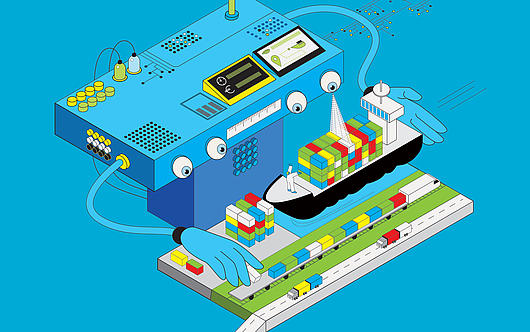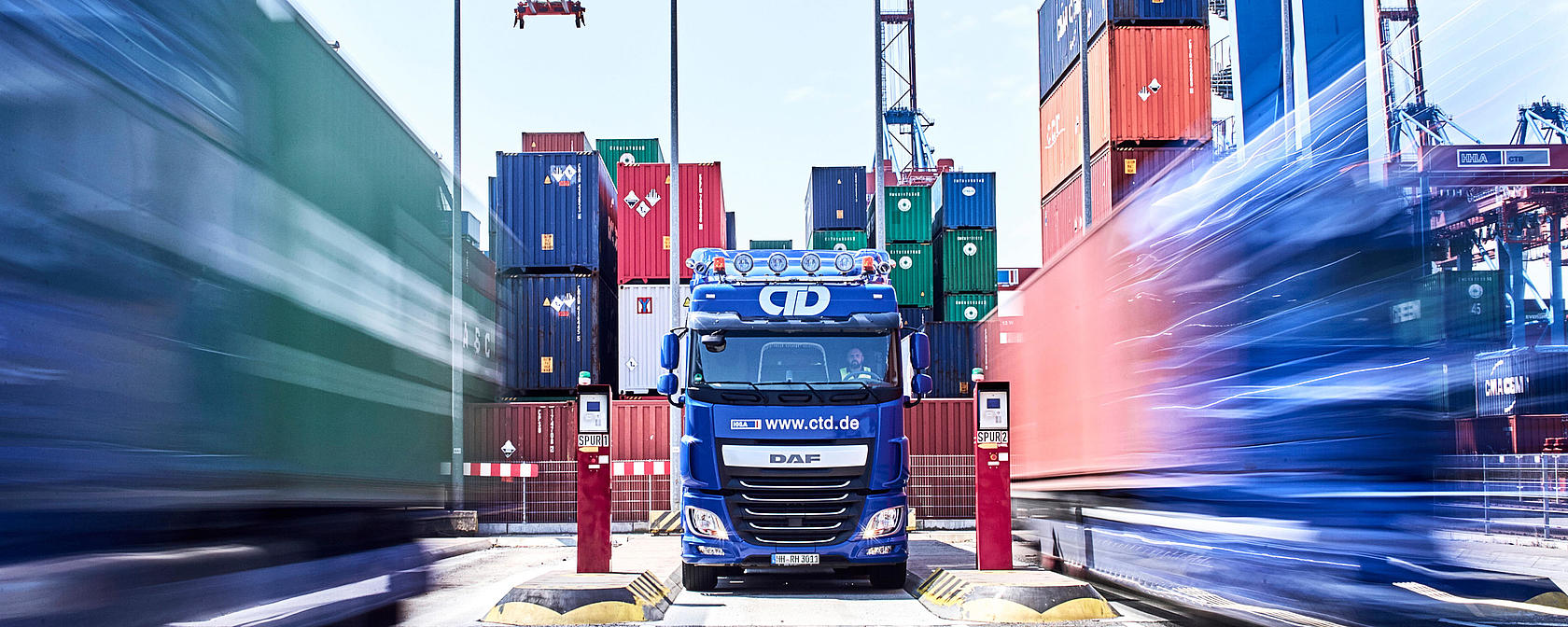
By now, digitalisation is part of everyday life – even in the Port of Hamburg, where it is often very crowded, especially at peak times. Digitalisation helps in saving already scarce time, maintaining an overview and organising processes safely, efficiently and cost-effectively. “Transparency in the supply chain is key to success,” says Marijo Pavlovic, Head of Operations at Container-Transport-Dienst (CTD). The trucking subsidiary of Hamburger Hafen und Logistik AG (HHLA) specialises in transfers between port terminals and depots in Hamburg and, as an intermodal service provider, also handles first and last-mile transportation at several German locations.
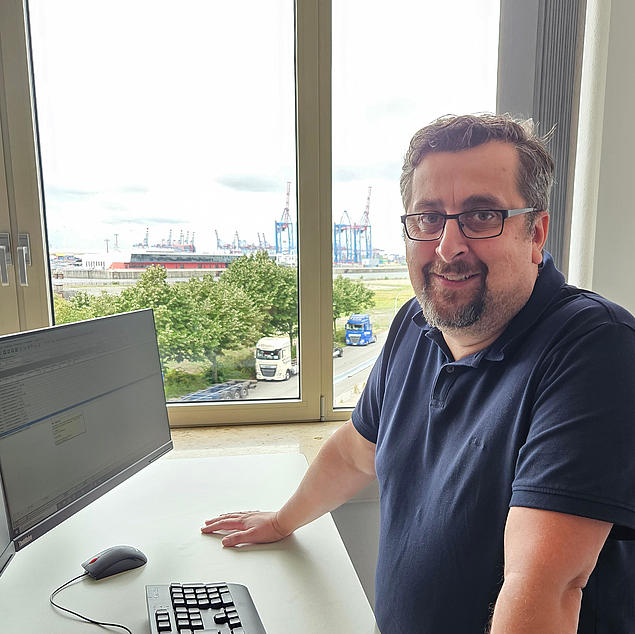
For many years, CTD has been relying on innovative IT solutions that are designed to optimise logistical processes, accelerate transportation and help to handle trucks in a completely digital way. “Since we started using the Cargo Support software, truck drivers no longer have to make the trip to CTD headquarters, for example,” says Pavlovic. In the past, they had to pick up written jobs at the counter, but nowadays they receive them automatically on their smartphone or tablet through the “Smile” app. Smile stands for “Smart Last Mile Logistics” and is an application that ensures paperless communication. CTD received an award from UmweltPartnerschaft Hamburg for the resulting CO2 savings.
“Internally, we no longer have a single piece of paper in circulation – all processes have been digitalised since 2013 and all freight documents are generated electronically,” adds Pavlovic. One side effect of the coronavirus pandemic gave digitalisation a major boost: dispatchers and customer service staff only have to be on site five days a month. The rest of the time they work from home. Office space was reduced by half and flexible workplaces were created.
Possibility of real-time tracking
Cargo Support, the forwarding and logistics software, ensures seamless communication and processing between parties involved in the supply chain. Pavlovic regards the software, from the Nuremberg IT vendor of the same name, as the industry leader in container transport. Interfaces feed orders from the customers’ transport management systems (TMS) directly into CTD’s version of Cargo Support. All incoming data is automatically converted to CTD’s codes. If data is missing, the software automatically triggers a request to the customer, under the responsibility of Customer Service, until the necessary details are complete. www.ctd.de
Internally, we no longer have a single piece of paper in circulation.
“Drivers who move boxes around for us don’t have to type anything into the Smile app,” explains Pavlovic proudly. They simply take a photo of the back of the containers, where all the relevant information such as container number, ISO code or maximum load is written. The Smile app can extract all the necessary data from the photo. It informs customers – if they wish – automatically and in real time, every hour or once a day about the status of the order: received, processed, dispatched, driver is en route or driver has arrived.
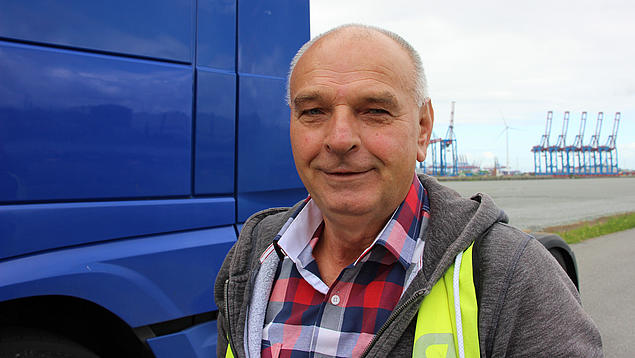

Workers at the terminals are also kept informed in real time. For example, HLS Port Logistic Services, the transshipment and warehousing company in Hamburg’s customs seaport, receives an automated message that a certain container will soon be collected and in turn informs its reach stacker drivers digitally so that they can then have the corresponding container ready. The freight documents are sent and received electronically via integrated platforms.
The Smile app helps to massively simplify cooperation between logistics firms, drivers, terminals, customs authorities, customers and dispatchers. The central digital platform connects all participants with each other and encourages the seamless exchange of information. And now automated customs checks are taking place too. Terminals and the customs office communicate electronically, which significantly reduces the time required to carry out the checks.
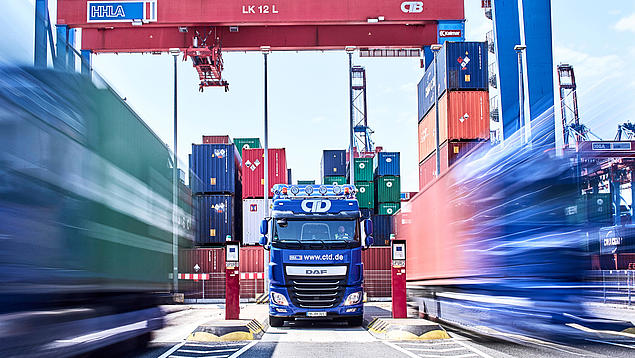
Truck drivers who need to enter the terminal area currently identify themselves with a trucker card, which terminal operators HHLA and Eurogate introduced almost 20 years ago. Soon, however, these cards will be replaced by the modern trucker and authentication app passify. The passify app has been developed by HHLA Next, the innovation unit of HHLA. The app marks the continued progression of digitalisation. It makes it possible to uniquely identify every trucker who wants to enter the terminal area.
Every day, HHLA’s Hamburg terminals handle more than 6,000 trucks delivering or unloading containers. “In future, every registered driver will be verified and digitally authenticated when entering the terminal,” explains Marcel Wiegand, co-founder of passify. This will ensure that the ID is genuine and that the driver is the person they claim to be. As drivers will be able to do everything via their smartphone, they will no longer have to wait in line at the terminal. Truck drivers will benefit from the fact that, if they use passify, the entire process for their truck will soon have digital support.
“Drivers rarely have to leave their truck and can cut down waiting times at various points in the supply chain,” explains Wiegand. From the point of view of the terminals, the efficiency benefit lies in the fact that they do not have to provide any additional high-maintenance hardware. The passify app was not developed exclusively for HHLA, but it is rather intended to support various logistics stakeholders in optimising their truck handling in the future.
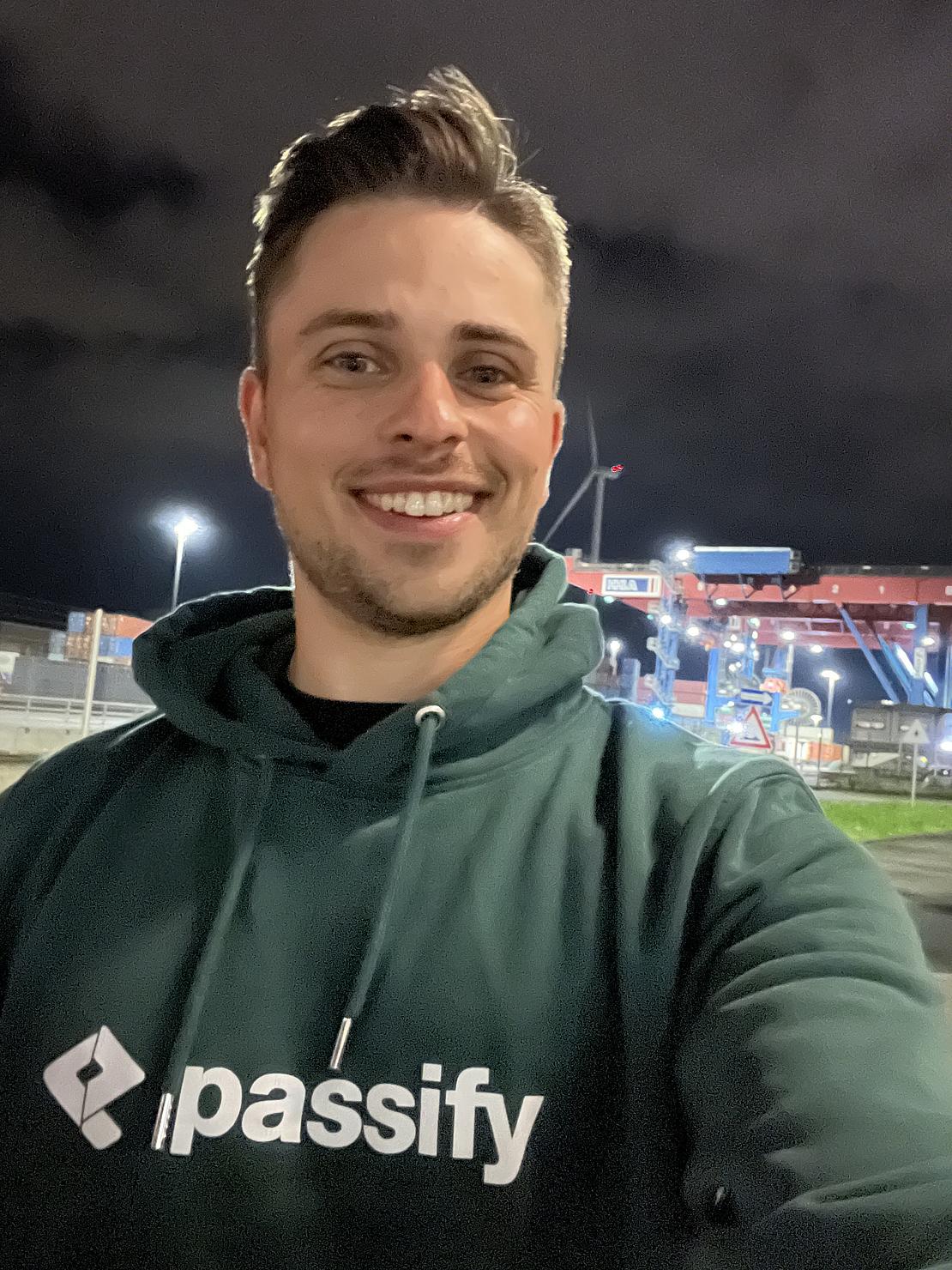
Auto dispatch at night increases capacities
The slot-booking process, mandatory for container handling in Hamburg since 2017, has long been established. By allocating time slots, terminals avoid peak handling periods and can spread the trucks more evenly throughout the day. “We were able to shift traffic to night-time, when it is less busy,” Pavlovic notes. The result is a more even utilisation of the vehicle fleet and increased capacities in day-to-day business. In addition, trucks are less likely to be stuck in queues and the number of empty runs has decreased drastically. A nice side effect is that operating costs and CO2 emissions have also fallen.

Since everything is digital, orders are now assigned automatically at night. “This means we no longer need dispatchers at night,” says Pavlovic. Arriving drivers receive an access code – unique to their slot – which they enter into the Smile app and which allows them to enter the terminal. They use GPS to communicate their current position along with the truck and chassis they are driving. From this information, auto dispatch combines how much they are permitted to load or which container type they are allowed to drive and then selects the orders. This process ends only when the driver stops ordering – that is, when they want to call it a day.
Less bureaucracy, more sustainability
Besides dispatch, truck drivers also have to do less now that fully automated driving is even possible within the terminals. At HHLA Container Terminal Altenwerder (CTA), self-driving trucks have already been successfully tested as part of the “Hamburg TruckPilot” project.
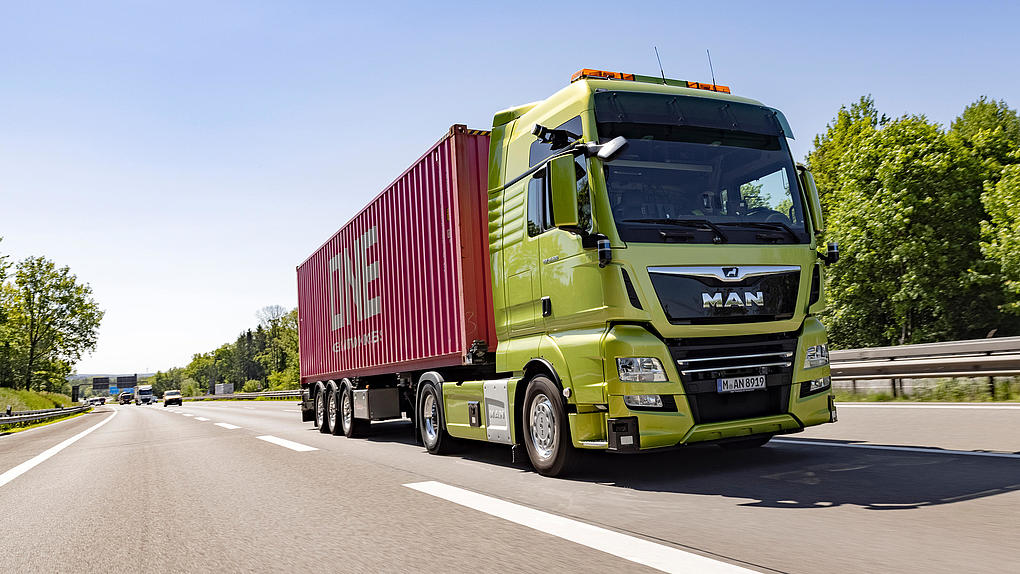
Autonomous Driving
HHLA has been working on the mobility of the future for years. Various new solutions for road and terminal traffic are being tested at its facilities. Autonomous trucks were driving at HHLA Container Terminal Altenwerder (CTA) as part of the successful “Hamburg TruckPilot” project.
Learn more
But that is a project for the future. At the moment, when an order is finally completed, the handling process is triggered automatically. Cargo Support checks all data for plausibility, creates an invoice and sends it to the customer as a PDF file by e-mail or through the corresponding interface. HHLA’s accounts department also receives the data electronically for reconciliation. The system is also able to generate credit notes. The advantages of automated billing are obvious: no paper is used and there are no postage costs. Bureaucracy is reduced and the logistics chain becomes more sustainable.
Identifying benefits through data analysis
And last but not least: all data is collected and can be analysed in real time, for example fuel consumption and vehicle status can be monitored at any time. Fleet operators and freight forwarders can use the results of this analysis to optimise their routes, load planning and operational procedures. Predictive maintenance can be used to detect problems with a vehicle at an early stage in order to minimise downtimes.
The analysis of the data promises additional benefits for all those involved in the supply chain. The sustainability, efficiency and safety of road transport can be improved while reducing costs.
Text and photos: Nicole de Jong

